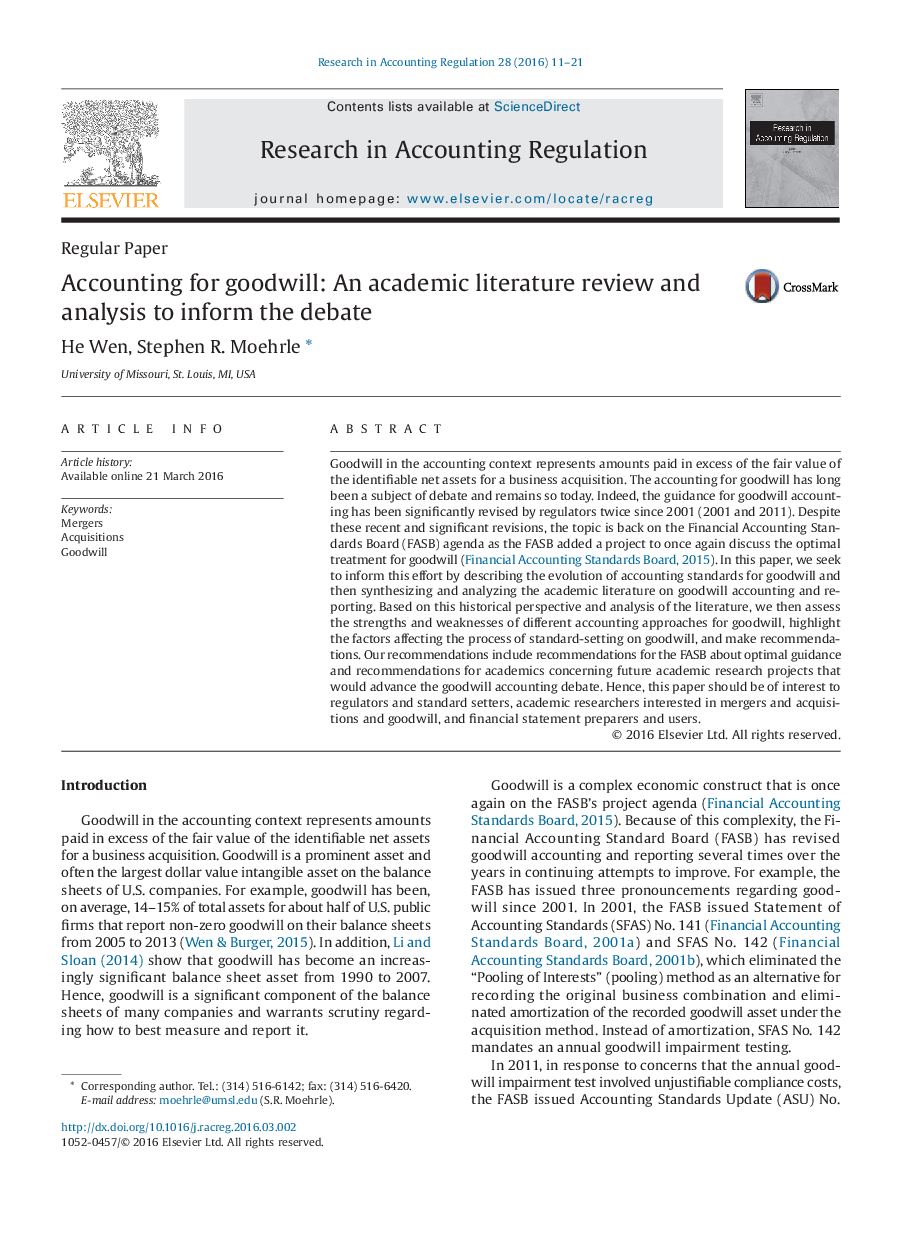| Article ID | Journal | Published Year | Pages | File Type |
|---|---|---|---|---|
| 1006557 | Research in Accounting Regulation | 2016 | 11 Pages |
Goodwill in the accounting context represents amounts paid in excess of the fair value of the identifiable net assets for a business acquisition. The accounting for goodwill has long been a subject of debate and remains so today. Indeed, the guidance for goodwill accounting has been significantly revised by regulators twice since 2001 (2001 and 2011). Despite these recent and significant revisions, the topic is back on the Financial Accounting Standards Board (FASB) agenda as the FASB added a project to once again discuss the optimal treatment for goodwill (Financial Accounting Standards Board, 2015). In this paper, we seek to inform this effort by describing the evolution of accounting standards for goodwill and then synthesizing and analyzing the academic literature on goodwill accounting and reporting. Based on this historical perspective and analysis of the literature, we then assess the strengths and weaknesses of different accounting approaches for goodwill, highlight the factors affecting the process of standard-setting on goodwill, and make recommendations. Our recommendations include recommendations for the FASB about optimal guidance and recommendations for academics concerning future academic research projects that would advance the goodwill accounting debate. Hence, this paper should be of interest to regulators and standard setters, academic researchers interested in mergers and acquisitions and goodwill, and financial statement preparers and users.
